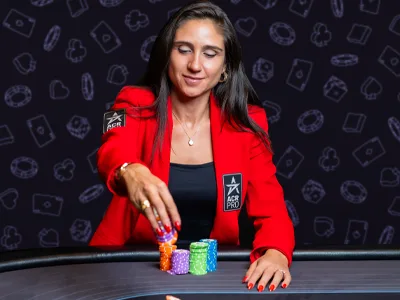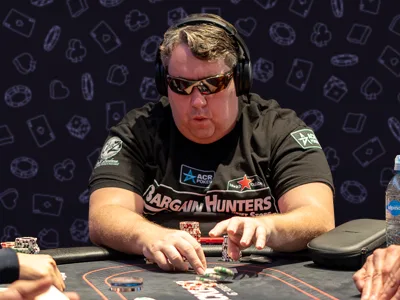Strategic aggression is not just about pushing chips, it’s about pushing at the right moments Managing aggression as blinds rise in a freezeout tournament is one of the most important adjustments a player can make. The changing stack-to-blind dynamics force everyone to rethink hand values, opening ranges, and risk tolerance. Players who fail to adapt
Category: How to
How to Navigate the Turn and River Effectively in Heads-Up Play
It’s not about raw aggression; it’s about reading patterns and making decisions align with a believable strategy Navigating the turn and river in heads-up poker requires sharp observation, discipline, and the ability to adjust quickly. With only one opponent, every decision carries more weight, and each street provides crucial information. Successful players know that these
Post-session Reflections: Learning from Cold Deck Experiences
The goal isn’t to avoid bad luck; it’s to respond to it with focus and a plan for continuous growth Every poker player has faced the frustration of a cold deck—a stretch where the cards seem determined to go against you. These sessions can feel like a test of patience and discipline, pushing even experienced
Adjusting Strategy for Flat Payouts vs. Top-Heavy Prizes
The best players learn to identify which environment they’re in and adjust seamlessly Tournament poker often requires players to adjust their strategy based on the payout structure, and understanding the difference between flat and top-heavy prizes is essential. A flat payout spreads winnings more evenly across finishing positions, rewarding consistency and survival. In contrast, a
Exploitative Play in Short Deck Poker
Learning to exploit mistakes, misreads and psychological patterns gives you a decisive edge Short Deck Poker, also known as Six Plus Hold’em, changes many traditional poker dynamics by removing cards two through five from the deck. With fewer cards, hand values shift dramatically, and players must rethink which strategies generate the most profit. Exploitative play—adjusting
How to Know When to Switch Up Your Strategy in Heads-up Play
Switching strategies is about staying one step ahead of your competition Heads-up poker is one of the purest tests of skill, forcing players to adapt quickly to a single opponent’s tendencies. Unlike fullring or six-max games, there’s no hiding—every hand matters, and every action reveals information. Knowing when to switch up your strategy in heads-up
The Psychology of Mucking: When to Throw Away Your Hand
By selectively choosing when to show or hide a fold, players control the flow of information In poker, knowing when to fold is just as important as knowing when to bet. Mucking — the act of throwing your cards away — is more than a mechanical move; it’s a psychological decision that tests discipline and
How To Find Value in Low Potential Hands in Texas Hold’em
Balance aggression, position, and observation, to find value in hands that others throw away Finding value in low potential hands in Texas Hold’em requires patience, awareness, and strategic timing. These hands, often considered marginal or speculative, can still turn a profit when played under the right conditions. The key is to recognize when the situation
Calculating Optimal Rebuy and Add-on Strategies in Rebuy Tourneys
A mathematical approach ensures that each rebuy contributes to your chance of reaching the final table Rebuy tournaments offer a unique challenge to poker players because they mix traditional strategy with calculated risk management. Knowing when to rebuy or add on can make the difference between a deep run and an early exit. The key
Maintaining Composure After Defeats in Heads-up Poker
In heads-up poker, emotional control is a crucial edge that keeps you playing at your best Losing in heads-up poker can sting more than any other form of the game. The intensity of one-on-one play amplifies every decision, and when a loss comes, it often feels personal. However, the ability to stay composed after a
Early Stage Survival Tactics in Freezeouts
Steady discipline early often sets the stage for success later Early stages in freezeout tournaments can be tricky, especially since there are no rebuys to fall back on. Every chip holds real value, and one mistake can mean an early exit. To survive and thrive, players must balance caution with opportunity, adjusting their approach based
When to Embrace Risk in Short Deck Hold’em
Balancing various factors helps you time your aggression and achieve consistent profits Short Deck Hold’em rewards players who know when to take calculated risks. Since the deck excludes cards two through five, the game becomes more volatile, and hand values shift dramatically. Hands like flushes are rarer, while straights and sets gain importance. This dynamic












